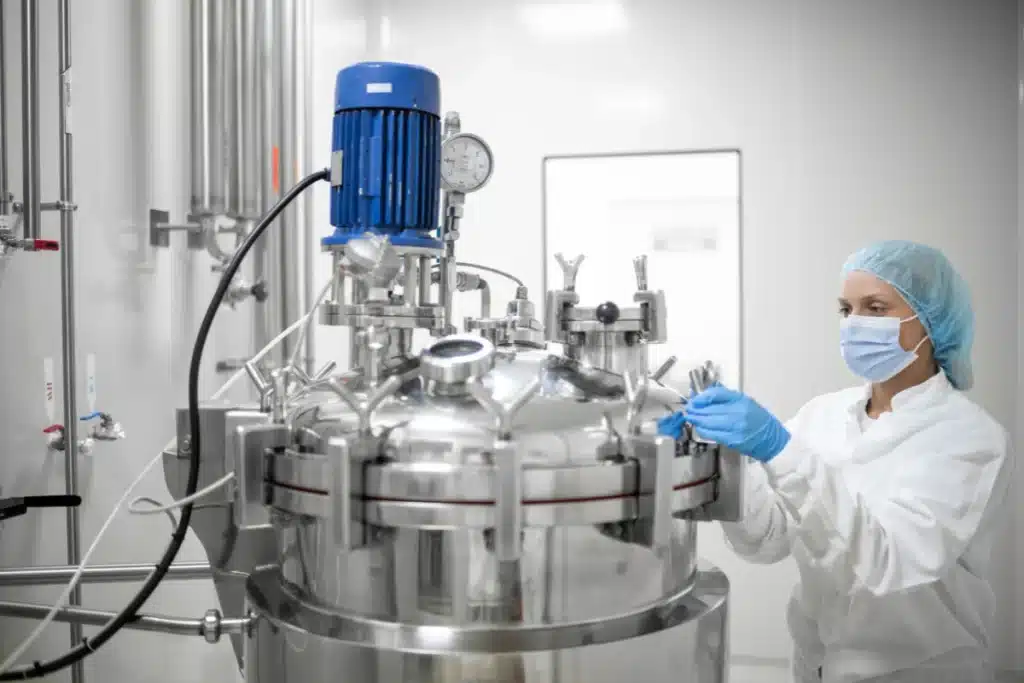Companies in the pharmaceutical industry have to adhere to strict regulations. This necessitates turning to tools like ERP systems to streamline processes and ensure compliance. An ERP like GoldFinch simplifies efforts at various stages, such as manufacturing and delivery. With this tool, a manufacturer can track materials, maintain inventory, organize distribution, and more. In addition, such a tool gives a business operational visibility, boosting overall profitability. Read on to understand how to control pharmaceutical compliance with GoldFinch ERP.
Efficient and Secure Documentation Storage
ERP systems provide you with secure and organized storage for different types of documents, including regulatory compliance certificates, quality control records, and manufacturing procedures. In addition, with advanced management features, only authorized personnel staff members can edit these documents, ensuring document integrity.
Streamlined Recipe Management
Another way an ERP will allow you to control compliance this year is by streamlining your recipe management process. It does this by standardizing the recipe data, ensuring consistency in the end product. Even if you’re producing these products in different locations, the tool ensures the end product will be the same.
It also streamlines recipe management through version control. This is very important in instances where formula changes need to be tracked and documented for purposes of regulatory compliance. Aside from that, ERP systems allow the traceability of ingredients used in recipes. This is vital in tracking the quality of raw materials and complying with regulations related to traceability.
Inventory and Materials Expiration Dates
An ERP ensures compliance by providing real-time visibility into the expiration date of inventory and raw materials. You can track the expiration dates for these products, making sure you don’t use expired materials that can compromise the safety and quality. By actively managing expiration dates, pharmaceutical companies prevent the production and distribution of products with expired ingredients.
Aside from that, the ERP tool also facilitates batch and lot traceability, linking certain batches to their expiration dates. This traceability is important for compliance because, in case of quality issues, the company can quickly trace the origin of particular batches, helping in investigations. Companies can also enable automated alerts and notifications so that they receive alerts about impending expirations. Such a feature allows the company to take timely actions like using materials before they expire or disposing of spoilt items, maintaining compliance.
Recall Management
A quality ERP system should be equipped with recall management features ensuring compliance with certain regulations and standards. The tool maintains records of products, including raw materials used, suppliers, manufacturing processes, and distribution channels. In case of a recall, the system allows easy traceability of the affected products by providing visibility into the entire supply chain.
It also stores relevant product information, including the manufacturing processes and quality standards. Since bodies like the U.S. Food and Drug Administration are strict on such matters, when they demand documentation to prove compliance, an ERP tool ensures these documents are readily available.
In case of a recall, the ERP can generate automatic notifications to distributors and customers. Through these notifications, a company can inform the relevant parties about the reason for the recall, which products are affected, and how they can be returned to the manufacturers. By streamlining the recall process, an ERP system helps companies comply with recall regulations.
Centralized Data
This system centralizes all data related to a particular product, which minimizes the risk of inaccurate information. Ensuring all team members access the same information from a single source reduces the risk of inconsistent information. This ensures compliance with regulations that require reliable data reporting. The tool also stores compliance-related documents on a single platform, making retrieving this information easier. This is important for pharmaceutical companies, where they’re audited regularly to ensure compliance.
Promote Team Collaboration
ERP’s team collaboration feature plays a crucial role in pharmaceutical compliance in several ways. First, it facilitates real time communication among various departments in pharmaceutical operations like research and development, quality control, and production. Quick communication allows departments to address compliance issues quickly and share information regarding regulatory changes.
Secondly, an ERP tool can help manage tasks efficiently. This is important for ensuring compliance-related activities like inspections, audits, and quality checks are carried out on time. Aside from that, the tool facilitates collaboration with external parties like vendors and suppliers. This is important for pharmaceutical companies to ensure compliance with the entire supply chain, including sourcing raw materials.
Regulatory Compliance Updates
Another way ERP helps ensure compliance is through regulatory compliance updates. The tool can be set in a way to receive automatic updates on regulatory changes and compliance requirements related to the pharmaceutical industry. This ensures a company is aware of any updates to regulations and standards. In addition, the system can automate compliance checks based on the latest regulatory standards. This ensures that ongoing processes and activities adhere to recent regulations, reducing the risk of non-compliance.
Training Management
If part of your company culture is training your employees, incorporating an ERP tool can come in handy in ensuring compliance. The ERP tool can help ensure your employees are trained on compliance requirements. You can use it to create and manage training courses and modules on compliance. For example, if you introduce a new manufacturing process, the ERP tool can be used to develop a training course that covers the steps, safety measures, and compliance associated with the new process.
Change Control
Pharmaceutical companies undergo changes from time to time. These changes can involve the equipment or processes used. An ERP system can help manage change control in several ways. For example, users can document the proposed change within the ERP system, providing a comprehensive justification for why the change is needed. This documentation is important for regulatory compliance.
Compliance is an important part of the pharmaceutical industry. Failure to comply risks the possibility of operations going wrong or even company closure. Thankfully, you can control pharmaceutical compliance with GoldFinch ERP. Why risk your company’s reputation when you can use this tool to ensure and manage compliance? Contact us today and learn more about how GoldFinch can help you stick to pharmaceutical guidelines.



